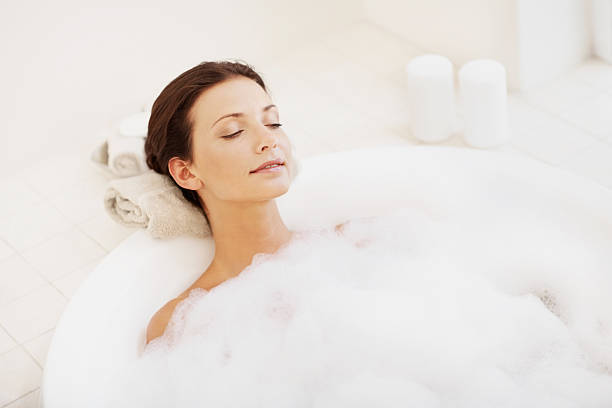Hydrotherapy, a branch of natural physical therapy, harnesses the power of water to promote well-being. It goes beyond a simple soak in the tub, utilizing various techniques and elements to create a holistic experience. This article delves into the world of hydrotherapy, exploring its effects on the body, its diverse benefits, and its place in modern healthcare.
Understanding the Principles of Hydrotherapy
The core principle of hydrotherapy lies in manipulating various water properties to create a therapeutic environment. Modern hydrotherapy equipment employs a combination of elements to achieve this:
- Active Oxygen: Similar to the invigorating air near natural waterfalls and forests, active oxygen in hydrotherapy equipment helps purify and revitalize the body.
- Ultrasonic Waves: These gentle sound waves provide a deep tissue massage, promoting circulation and aiding in pain relief.
- Negative Ions: Replicating the air quality found near natural bodies of water, negative ions contribute to relaxation and stress reduction.
These elements work in conjunction with water temperature, pressure, and various additives like essential oils, bath salts, and traditional Chinese medicine (TCM) ingredients. By applying water in different forms (baths, jets, etc.) on the whole body or specific areas, hydrotherapy aims to achieve a range of benefits.

A Multitude of Benefits: How Hydrotherapy Impacts Your Health
Hydrotherapy’s influence extends far beyond a refreshing dip. Here’s a closer look at the diverse benefits it offers:
- Pain Relief: The combination of warm water, massage (from water jets or ultrasonic waves), and improved circulation effectively reduces muscle tension and joint pain. This is particularly beneficial for individuals suffering from arthritis, chronic pain conditions, and sports injuries.
- Improved Circulation: Hydrotherapy, especially with alternating hot and cold water applications (contrast therapy), enhances blood flow throughout the body. This improved circulation delivers essential nutrients to organs and tissues, promoting overall health.
- Stress Reduction and Relaxation: The warmth and buoyancy of water, coupled with the calming effects of negative ions and essential oils, create a deeply relaxing environment. Hydrotherapy can significantly reduce stress hormones, promoting feelings of peace and well-being.
- Enhanced Detoxification: Sweating, a natural response to warmth, is encouraged during hydrotherapy sessions. This process helps eliminate toxins and impurities from the body, contributing to a sense of rejuvenation.
- Boosted Immunity: Improved circulation and enhanced cellular activity, facilitated by hydrotherapy, can strengthen the immune system, making the body more resistant to illness.
- Skin Health: Warm water helps open pores, allowing for deeper cleansing. Additionally, the addition of bath salts and essential oils can nourish and revitalize the skin.
- Improved Sleep Quality: Relaxation and stress reduction achieved through hydrotherapy can significantly improve sleep quality, leaving you feeling more rested and energized.
- Faster Recovery: Athletes and individuals recovering from injuries can benefit from hydrotherapy’s ability to reduce inflammation, promote muscle healing, and improve range of motion.
- Pain Management During Pregnancy: The buoyancy of water provides gentle support for the increased weight during pregnancy, easing pressure on the back and joints. Additionally, warm water can help alleviate muscle aches and discomfort.
Traditional Chinese Medicine (TCM) Perspective: In TCM, hydrotherapy plays a vital role in promoting the flow of “qi” (vital energy) and balancing “yin” and “yang” within the body. It’s believed to strengthen tendons and bones, nourish internal organs, and eliminate fatigue.

Modern Applications: Hydrotherapy in Today’s World
Hydrotherapy has transcended its traditional roots and is now widely used in various healthcare settings:
- Physical Therapy: Hydrotherapy plays a crucial role in physical therapy programs, helping patients regain strength, flexibility, and range of motion after injuries or surgeries.
- Pain Management: Warm water therapy is a valuable tool for managing chronic pain conditions like arthritis and fibromyalgia.
- Stress Management: Hydrotherapy’s stress-relieving properties make it a valuable addition to stress management programs, promoting relaxation and emotional well-being.
- Sports Medicine: Athletes utilize hydrotherapy for muscle recovery, pain management, and improved performance.
- Wellness and Spa Treatments: Hydrotherapy forms the foundation of many spa treatments, offering a holistic approach to relaxation and rejuvenation.
Safety Considerations: While generally safe, consulting a healthcare professional before starting hydrotherapy is advisable, especially if you have any underlying health conditions. Additionally, proper hydration before and after sessions is crucial.



